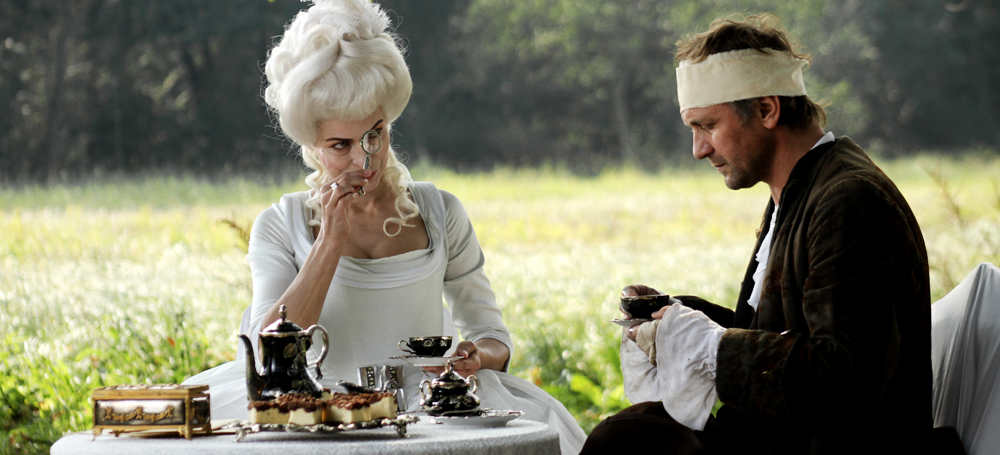Unraveling the Human Spirit: Exploring "Das" (2011) - Movie Review
Introduction: "Dass" (2011) directed by Rituparno Ghosh, is a poignant exploration of human emotions and societal norms set in the backdrop of Bengal's aristocratic society during the 19th century. This film delves into the complexities of relationships, desires, and the struggle for individuality in a society bound by tradition and hierarchy.

The Plot Unveiled: The film centers around the life of Shekhar (played by Jisshu Sengupta), a talented sculptor who is commissioned to create a statue of the goddess Durga. As Shekhar immerses himself in his work, he forms a deep emotional bond with his muse, the beautiful and enigmatic Durga (portrayed by Raima Sen). Their forbidden love affair unfolds against the backdrop of a conservative society, leading to a series of tumultuous events that challenge their notions of love, duty, and identity.
A Tale of Forbidden Love: At its core, "Dass" is a tale of forbidden love that transcends societal norms and expectations. Shekhar and Durga's romance is a delicate dance between passion and restraint, as they navigate the complexities of their relationship in a world that seeks to control and suppress their desires. Their love affair serves as a powerful metaphor for the human spirit's innate longing for freedom and self-expression, even in the face of adversity.
Aesthetic Brilliance: Visually stunning and meticulously crafted, "Dass" captivates viewers with its evocative cinematography and richly detailed set design. Director Rituparno Ghosh expertly captures the beauty and grandeur of Bengal's aristocratic society, transporting audiences to a bygone era filled with opulent palaces, lush landscapes, and vibrant cultural traditions. Each frame is a work of art in itself, reflecting the film's thematic depth and emotional resonance.
Emotional Depth and Complexity: "Dass" delves into the emotional complexities of its characters with sensitivity and nuance, offering viewers a window into their innermost thoughts and desires. Shekhar's internal struggle between his passion for Durga and his sense of duty to his family is portrayed with raw intensity, while Durga's quiet strength and resilience shine through her moments of vulnerability. The film's supporting characters, including Shekhar's wife and Durga's husband, add layers of depth and complexity to the narrative, highlighting the intricacies of human relationships and societal expectations.
Critical Acclaim and Audience Reception: Upon its release, "Dass" received widespread critical acclaim for its powerful storytelling, stellar performances, and visual beauty. Critics praised Ghosh's sensitive direction and the film's evocative portrayal of love and longing in a repressive society. Audiences were similarly moved by the film's emotional depth and thematic resonance, making it a commercial and critical success.
Conclusion: In conclusion, "Dass" (2011) is a cinematic masterpiece that transcends genres and leaves a lasting impact on its viewers. With its compelling narrative, exquisite aesthetics, and profound exploration of human emotions, the film offers a thought-provoking meditation on love, desire, and the indomitable human spirit. Whether you're a fan of period dramas or simply appreciate powerful storytelling, "Dass" is a must-watch film that will linger in your mind long after the credits roll.
Experience the emotional depth and visual splendor of "Dass" (2011), a cinematic masterpiece that explores the complexities of love, desire, and societal norms in 19th-century Bengal. With its captivating storytelling, stellar performances, and breathtaking aesthetics, this film is sure to leave a lasting impression on audiences around the world. So, immerse yourself in the world of Shekhar and Durga as they navigate the tumultuous landscape of love and longing in a society bound by tradition and hierarchy.


